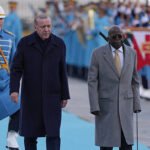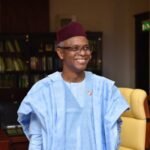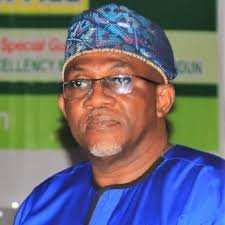The Association of Tourism Practitioners of Nigeria (ATPN), one of the country’s oldest umbrella bodies for tourism professionals, has been thrown into turmoil following a bitter leadership dispute that has left stakeholders divided and uncertain about the association’s future.
On Sunday, September 28, 2025, the Governing Council of ATPN announced the suspension of its President, Prince Adetunji Femi Fadina, over what it described as “grave infractions” of the association’s constitution. In his place, the council named First Deputy President, Mr. Ayo Arokoyo, as Acting President — a move it insists followed due process and constitutional provisions.
The Council’s Case
According to the Governing Council, Fadina was formally queried and asked to defend himself against allegations that remain undisclosed to the public. His responses, the council said, were “unsatisfactory.” A disciplinary panel has since been constituted to further interrogate the issues and make recommendations.
To consolidate its position, the council issued a public disclaimer warning government agencies, tourism stakeholders, and the general public not to transact any business with Fadina in the name of ATPN. It further mandated Arokoyo to begin long-delayed processes, including the inauguration of standing committees seen as critical to the association’s reform agenda.
“I pledge to uphold the tenets of our constitution and govern inclusively,” Arokoyo said in a brief remark after his appointment, promising stability during what is clearly a sensitive transition.
NEC Fights Back
But within 24 hours, the National Executive Council (NEC) of ATPN hit back strongly, dismissing the suspension as “misleading, unconstitutional, and null and void.” The NEC declared unequivocally that Fadina remains the “duly elected and authentic President” of the association.
In its counter-statement, the NEC argued that the Board of Trustees (BoT) — which it accused of engineering the suspension — has no constitutional authority to remove or appoint the president. “Such authority resides squarely within the constitutional processes of the National Executive Council and the General Assembly,” the NEC said, calling the announcement of an Acting President an affront to due process and the will of members.
The statement was scathing: “Tourism in Nigeria deserves clarity, not confusion. It deserves service, not selfishness. And it deserves leaders chosen by practitioners, not imposed by intrigue.”
The Legal Angle
Adding fuel to the debate, legal practitioner Wale Ojo-Lanre waded in, describing the suspension as “ultra vires, illegal, and utterly null and void.” He argued that under both association law and the Companies and Allied Matters Act (CAMA), the BoT serves only as a custodian of assets, not as an executive body with powers to suspend an elected officer.
“If indeed the President has erred, there exists a clear, lawful procedure for discipline,” Ojo-Lanre explained. “Any deviation from this procedure amounts to illegality, nullity, and executive recklessness.”
Implications for Tourism
The crisis comes at a delicate moment for Nigeria’s tourism sector, which is struggling to reposition itself amid global competition, domestic insecurity, and chronic underfunding. ATPN, under Fadina, had been reviving after years of inactivity, with efforts at expanding membership, restructuring state chapters, and pushing for stronger engagement with government.
Now, with rival factions each claiming legitimacy, industry observers fear that the association’s credibility could be undermined just when it needs to speak with one voice on policy, investment, and marketing.
For stakeholders — from travel agents to tour operators, hoteliers, and culture promoters — the confusion poses risks. Which leadership should they recognize? Whose directives should they follow? And can ATPN maintain unity in the face of such public division?
The Road Ahead
What happens next may hinge on the disciplinary panel’s findings and, more decisively, on the courts if the NEC follows through on its threat of legal action. Until then, the tourism community is left watching as the battle for the soul of ATPN plays out in press releases, counter-statements, and public opinion.
What is clear is that Nigerian tourism — a sector long seeking clarity, investment, and leadership — can ill afford internal battles. As one stakeholder put it, “This is the time for ATPN to unite and lead, not fight itself.”









